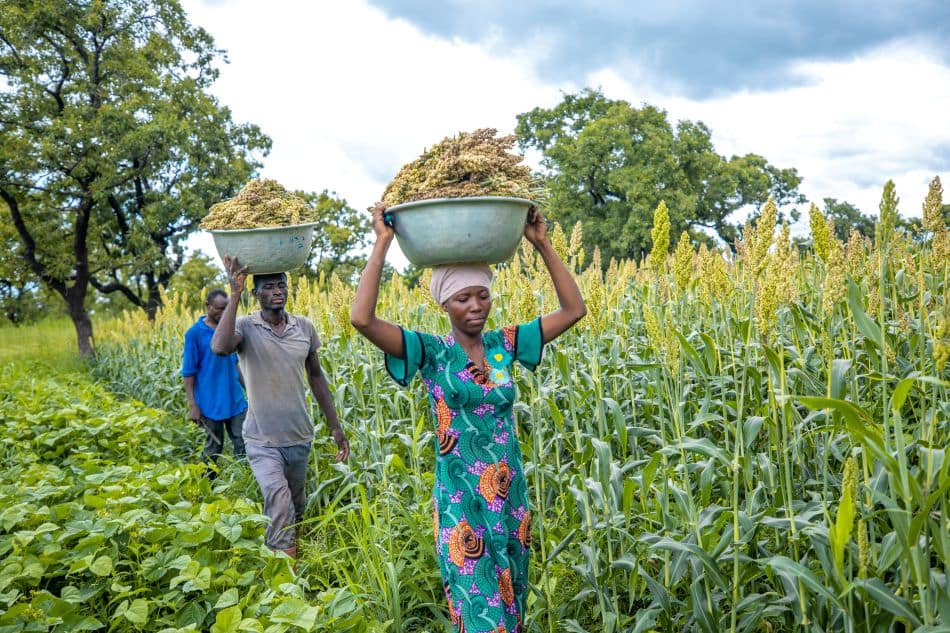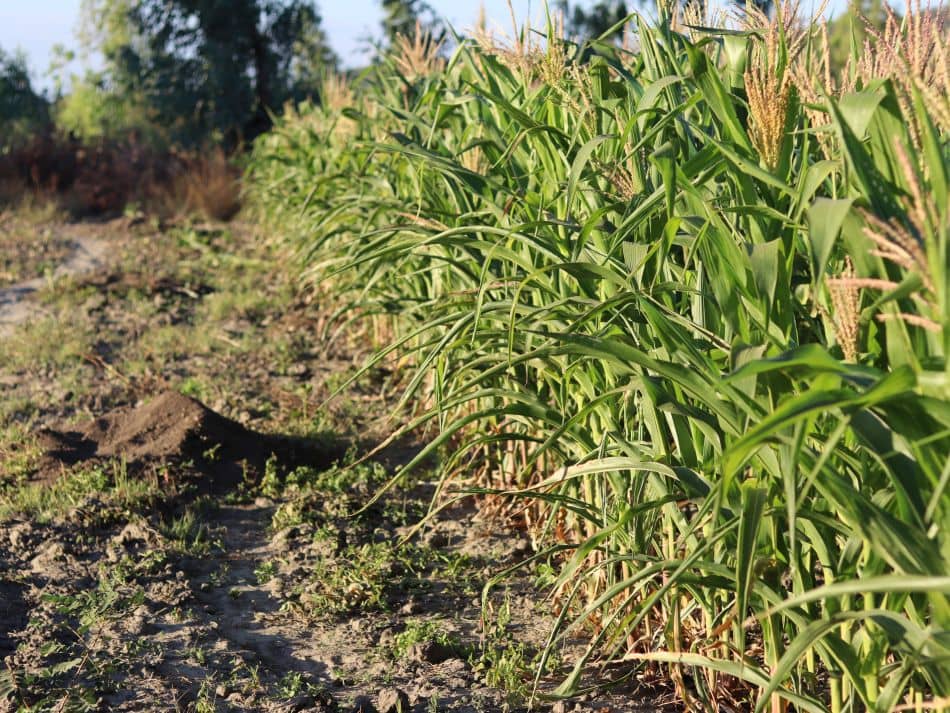
Water is more than a resource for crops, it is the lifeline of food security, economic growth and climate resilience. Yet too often, water considerations are fragmented across policies and sectors. The African Union’s Comprehensive Africa Agriculture Development Programme’s (CAADP) new strategy shifts the focus, placing water-smart approaches at the center of the continent’s agricultural transformation agenda.
Since its launch in 2003 following the Maputo Declaration, CAADP has served as Africa’s foremost policy framework for agricultural transformation. Africa has experienced significant agricultural and economic growth over the last two decades. Despite such progress, however, rising food insecurity and poverty persist. Today, Africa stands at a pivotal moment in its agricultural journey. The launch of the CAADP Strategy and Action Plan for 2026–2035, framed by the Kampala Declaration of 2025, signals renewed urgency for transforming agrifood systems. At its heart lies a call to action: Africa must prioritize sustainable water management to turn its agricultural ambitions into reality.
A shared vision of agrifood systems transformation across Africa
The International Water Management Institute (IWMI) is uniquely positioned to support the continental goals towards building resilient and sustainable agrifood systems. Through its 2024–2030 Strategy: research and innovation for water security, IWMI combines cutting-edge science with practical innovations and policy engagement to advance CAADP’s six strategic objectives: sustainable production, inclusive livelihoods, nutrition, financing, governance and resilience.
As a knowledge institute and a key partner in Africa’s agricultural development, IWMI’s work connects water security to agrifood transformation. It advances water-centric solutions for food security and climate resilience, central to the agrifood transformation envisioned by the CAADP strategy and action plan.
In food production, for example, IWMI has promoted affordable, climate-smart irrigation systems from solar-powered pumps to other solutions that enable smallholder farmers to stabilize yields and provide a reliable year-round supply. Adoption of solar-powered irrigation facilitated by IWMI has helped farmers, such as Peter Oppong from the Ashanti region of Ghana, increase the output of his cocoa farm. Oppong’s annual yield rose from 535 kilograms (Kg) per acre with rainfed farming to 877 Kg with irrigation. In sub-Saharan Africa, meanwhile, these interventions are boosting women’s participation in vegetable value chains and supporting youth entrepreneurs to drive innovation. By combining smart irrigation management with market access, IWMI helps ensure that food reaches not only farms but also value chains and consumers.
Nutrition also benefits from water-smart innovation. By shifting from rainfed to irrigated farming, IWMI helps farmers diversify crops and ensure year-round production of nutrient-rich foods such as vegetables in Mali. Its work on water reuse integrates food safety and water quality, linking agricultural water to public health in ways often overlooked. Analysis by IWMI researchers showed that water and nutrients in the municipal wastewater generated in the 19 Middle East and North African countries, if fully recovered, could irrigate and fertilize more than 2.6 million hectares.
Transformation requires investments at scale, yet irrigation and water infrastructure often struggle to attract capital. IWMI addresses this by preparing bankable investment cases, designing blended finance and public–private partnerships, and mobilizing resources through farmer-led irrigation development pathways. Solutions such as the solar-based irrigation bundle and gender-responsive credit scoring are opening the door to financing models that better serve smallholders, including women farmers, while reducing risk for investors.
All of these efforts are underpinned by resilience and governance. IWMI’s digital innovations, such as the Early Warning, Early Action and Early Finance, or AWARE, platform, transform disaster response by enabling anticipatory action and pre-arranged finance for droughts and floods. IWMI’s climate vulnerability mapping guides governments toward smarter, risk-informed planning. By convening multi-stakeholder dialogues and advancing policy coherence across water, agriculture, energy and climate, IWMI ensures that water-smart solutions are not isolated actions but rather part of systemic transformations.
This shared vision of agrifood systems transformation creates the basis for the alignment between IWMI’s 2024-2030 strategy and CAADP 2026-2035, making the institute a critical partner for the implementation of CAADP’s vision.
IWMI’s approach to advancing Africa’s agriculture agenda emphasizes the centrality of water in achieving the CAADP objectives. It highlights how IWMI will support the program’s vision by assisting governments design climate-smart water solutions, de-risk irrigation investments, develop inclusive business models that attract private financing, build digital tools for weather, market and water data, and strengthen governance and capacity for scaling water-smart innovations.

What next?
As the next phase of CAADP implementation begins in January 2026, IWMI will continue to support its continent-wide agenda. IWMI is already aligning itself with the 2026–2035 plan through its ReSAKSS 2025 project, providing technical support to strengthen CAADP data systems and capacities; and through the CGIAR Scaling for Impact Program which fosters partnership synergies to deliver scalable, inclusive and responsible innovation benefits, thereby contributing to the strategy’s success.
During the next few years, IWMI will focus on scaling innovation bundles for agricultural water management and irrigation, circular recovery of nutrients, digital water intelligence, nature-based solution to build resilience, biodiversity and ecosystem restoration, and embedding gender equality and social inclusion across all its work with a view to applying the evidence generated to strengthen policies to support agrifood systems in Africa.
The Kampala Declaration and CAADP strategy are ambitious and build on the successes of the last two decades of CAADP implementation, which were limited by underfunding, weak monitoring and evaluation capacities, data quality issues and intensifying climate risks. To succeed, this decade must see more than technical solutions and address the gaps identified in the Malabo Declaration. This demands sustained investment, political leadership and accountability, supported by partnerships that bring together governments, regional organizations, the private sector, civil society and most importantly, youth – the active voices of our future.
Mobilizing youth and water for Africa’s agriculture future
This September, Africa and its partners converge in Dakar, Senegal for the Africa Food Systems Forum 2025 to discuss the role of Africa’s youth in leading collaboration, innovation and the implementation of agri-food systems transformation. While CAADP provides the continental roadmap for agricultural transformation, the forum serves as a key implementation platform by translating its high-level policy commitments into actionable investments and partnerships.
Drawing on its long-standing work across Africa, IWMI is ready to answer the call as a strategic partner, bringing together governments, the private sector, development partners, non-governmental organizations, academic institutions, funders and other stakeholders in realizing Africa’s agriculture ambitions.
Water fundamentally underpins Africa’s agricultural future, however, coordinated action is essential to transform fragmented water practices into resilient, equitable and prosperous agrifood systems, securing a food- and water-secure future for generations to come.

